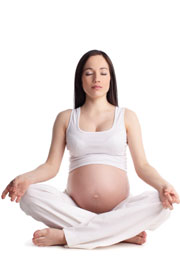
Happy Friday! Here are seven reasons I chose to formula-feed my third baby after breastfeeding the first two, and why it turned out to be a real life-saver. This obviously isn’t the right choice for everyone, and I have extreme admiration for people who stick with breastfeeding when the going gets tough. I do hope that this might be helpful for women who are on the fence or feeling bad about their decision to bottle-feed.
- More sleep. This wasn’t a luxury for me–it was a necessity. My baby really did sleep longer on formula, and I was able to let my husband give the baby a bottle in the middle of the night or while I was napping or cooking supper.
- Painless and easy! Again, many women are happy to make the sacrifice to breastfeed their children even when it’s difficult, but when life is already difficult enough for other reasons, there’s nothing wrong with making it easier on yourself. I had horrible pain and trouble breastfeeding my first. The second was better but still uncomfortable.
- Breastfeeding totally kills my libido, so bottle-feeding was a big boost for my marriage.
- Lots of women pick breastfeeding, in part, because it provides them with a few years of infertility to space their children. For me, though, that wasn’t worth it; sure, I’d probably be infertile for two years, but I couldn’t be sure, and meanwhile my fertility signs were so confusing that there was a ridiculous amount of abstinence and anxiety. Bottle-feeding made my cycle come back quickly, but then it was regular, so NFP was a lot easier.
- Bottle-feeding also made it easier to get out of the house and leave the baby with a babysitter, or just to get the baby out of my arms for a couple of minutes and with her Daddy or big brother or a comfy bouncy seat instead. At that particular time in my life, this was a Godsend.
- Bottle-feeding was not as hard as people made it sound. (I do know that I was lucky in this regard, because my baby didn’t need any special allergenic formulas or fancy bottles.) I thought I’d have to worry about the exact amount I mixed, and the exact time I fed the baby, and all sorts of expiration dates and holding times. In reality, it was as simple as breastfeeding. I took the advice of my midwife and never heated up the bottles, so the baby never expected them to be warm.
- As I write this, I realize that a lot of these sound like excuses. I can imagine myself, four years ago, saying “sure bottle-feeding is easier, and less painful, and gives you more sleep and freedom, but isn’t your baby’s health worth making sacrifices for?” That’s true, of course; but what I didn’t realize was that these principles are not absolute. My baby would be plenty healthy on formula, and there were times in my life when the extra benefits of breastfeeding were NOT worth the sacrifices. When you’re already weepy and depressed, bottle-feeding to get all the sleep you can is good for you and your family. By my third baby, I was confident and realistic enough to tune out the guilt and pressure and happily feed my baby the way that worked best for me. Here’s a nice little photo series that shows moms bonding with their babies over a bottle. Head over to Kelly’s for the rest of the Seven Quick Takes!



